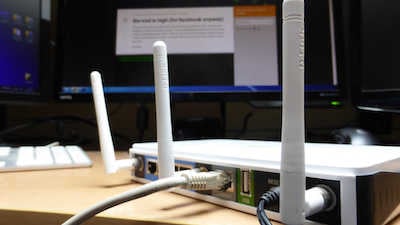 Ensuring patient privacy is a top priority for healthcare providers. With the increasing reliance on technology in healthcare, it is important to have secure WiFi networks in place to prevent unauthorized access to sensitive patient information.
Ensuring patient privacy is a top priority for healthcare providers. With the increasing reliance on technology in healthcare, it is important to have secure WiFi networks in place to prevent unauthorized access to sensitive patient information.
One of the main concerns with WiFi in healthcare settings is the potential for data breaches. Hackers can use unsecured WiFi networks to access electronic medical records (EMRs) and other sensitive patient information. This can lead to the theft of personal information, such as Social Security numbers and financial data, as well as the potential for identity theft.
Ensuring patient privacy with secure WiFi in healthcare settings is essential in today's digital age. With the rise of electronic medical records and the increasing use of technology in healthcare, protecting patient information from unauthorized access is more important than ever.
Here are 10 key steps to take when implementing secure WiFi in a healthcare setting:
-
Choose a reputable provider: When selecting a provider for your healthcare organization's WiFi network, it's important to research and compare different options. Look for a provider with a strong reputation for security and experience in the healthcare industry.
-
Use encrypted connections: Encrypting data transmitted over the network is crucial for protecting patient privacy. This can be done through the use of a virtual private network (VPN) or other encryption methods.
-
Regularly update security protocols: As technology and security threats evolve, it's important to regularly update your organization's security protocols. This may include implementing new software and hardware solutions, as well as training staff on the latest security best practices.
-
Educate staff on the importance of patient privacy: In order to effectively protect patient information, it's important for all staff members to understand the importance of maintaining privacy. This may include regular reminders to log off of the network when not in use and avoid sharing login credentials.
-
Conduct regular security audits: Regular security audits can help identify potential vulnerabilities in your organization's network and provide recommendations for improvement. This is an essential step in ensuring the ongoing protection of patient information.
-
Implement access controls: Access controls, such as password-protected login credentials and user permissions, can prevent unauthorized individuals from accessing sensitive information on the network.
-
Use firewalls and other security measures: Firewalls and other security measures, such as intrusion detection systems and antivirus software, can provide an additional layer of protection for your organization's network.
-
Develop a plan for responding to data breaches: In the event of a data breach, it's important to have a plan in place for responding quickly and effectively. This may include notifying affected patients, conducting a thorough investigation, and implementing additional security measures to prevent future breaches.
-
Regularly train and educate staff: Ongoing training and education for staff members can help ensure that they are up-to-date on the latest security best practices and are equipped to effectively protect patient privacy.
-
Monitor and track network activity: Regular monitoring and tracking of network activity can help identify potential security threats and provide insight into potential vulnerabilities in the network.
By taking these 10 key steps, healthcare organizations can effectively implement secure WiFi networks and protect patient privacy in their healthcare settings.
In addition to implementing secure WiFi networks, healthcare providers should also have clear policies in place regarding the use of personal devices on the network. Many healthcare workers use their own smartphones, tablets, and laptops to access patient information, which can create additional security risks.
To address this issue, healthcare providers should require employees to use secure, encrypted WiFi connections when accessing patient information from personal devices. They should also have clear policies in place for the proper disposal of electronic devices that contain sensitive patient information.
Ensuring patient privacy is essential for the reputation and trustworthiness of any healthcare provider. By implementing secure WiFi networks and following best practices for data security, healthcare providers can protect their patients' sensitive information and prevent potential data breaches.

